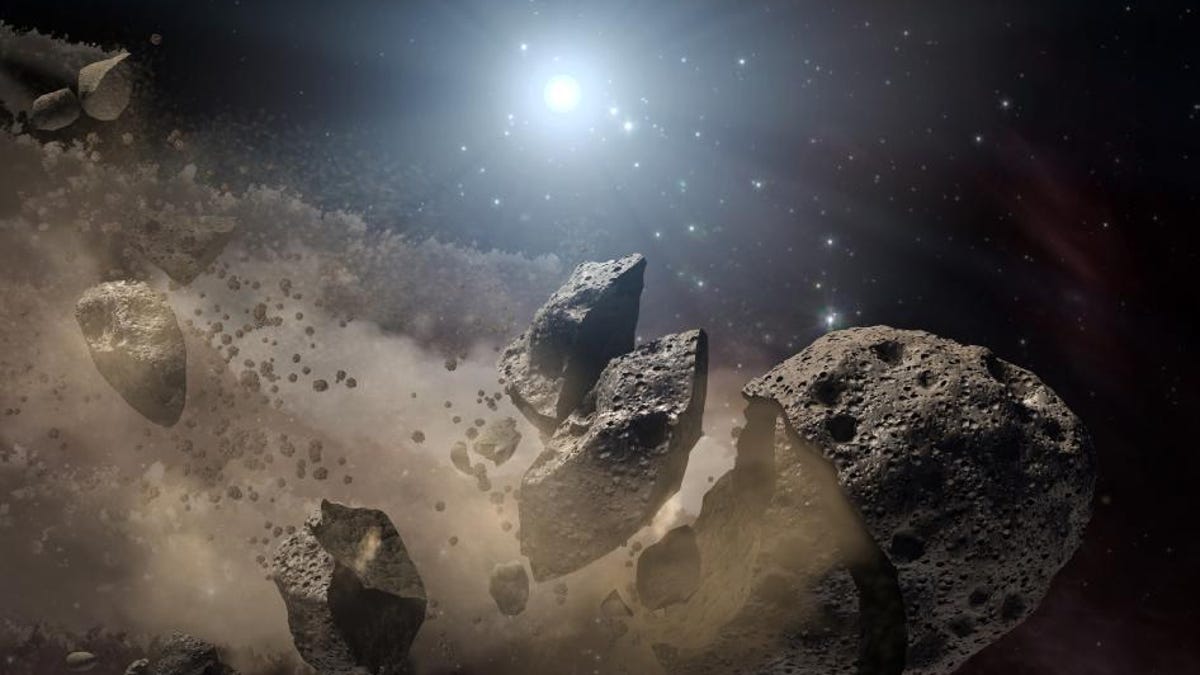Dinosaurs were doing just fine until the asteroid hit, new research says
The data shows tyrannosaur and herbivores were still dominating the globe.

NASA's depiction of the asteroid that ended the time of the dinosaurs.
Most dinosaurs were "flourishing" before the asteroid that wiped them out struck, according to a new study from London's Natural History Museum. While other studies have hypothesized that mercury poisoning or even flowers killed the dinosaurs before the asteroid could, this new study published Nov. 18 aims to disprove that "dinosaurs were already on the decline and heading towards extinction."
"What we found is that the dinosaurs were still dominant, they were still widespread and still doing really well," said Joe Bonsor, a Ph.D. student who contributed data to the study published in the Royal Society Open Science journal. "If the asteroid impact had never happened, then they might not have died out and they would have continued after the Cretaceous."
Previous research has drawn conclusions from a lack of fossils, claiming it shows a decline in dinosaurs. But Bonsor says there isn't enough data to be strong enough evidence that dinosaurs were dying out. "The only way to know for sure is to fill in the gaps in the fossil record," he added.
The new study says that right up until the end of the Cretaceous period, several diverse species of herbivores -- hadrosaurs, ceratopsians, ankylosaurs and titanosaurs -- as well as predators, including tyrannosaurs and abelisaurs, were dominant across Americas and the globe.
"This all builds to show a picture in which these ancient animas were not seemingly in decline and were still in fact the main component of most land-based ecosystems," the museum said.
The study, spotted earlier by CNN, follows scientists at the University of Texas at Austin last year saying they found "hard evidence" of the asteroid that killed off dinosaurs. That research shows the asteroid caused wildfires and tsunamis after hitting with the impact of 10 billion WWII-era atomic bombs.

